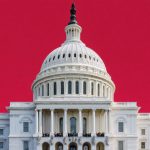
Is Your Sky Being Watched? Drones are Causing Widespread Fear
Rogue drones are increasingly making headlines across the U.S., leaving residents concerned about their privacy and safety. Reports of these unmanned aerial vehicles hovering over neighborhoods have emerged from various states, including California, Nevada, and as far east as Virginia and New York. Additionally, Central Florida has seen its share of these mysterious sightings, escalating the fear among local communities.
The alarming presence of these drones has sparked heated discussions on how to respond. Some individuals are considering taking drastic measures, such as attempting to shoot down the drones. However, experts in legality are warning against such actions, asserting that it could open the door to serious legal consequences for those who act impulsively.
People across the nation are left pondering who operates these drones and for what purpose. As conversations surrounding drone surveillance intensify, residents are urging lawmakers to establish clearer regulations and safeguards that protect personal privacy and safety. Without definitive answers or regulations, the threat of rogue drones continues to loom large, leaving many feeling uneasy about the potential for invasion of personal space.
With drone technology becoming more accessible, it seems this issue is only set to grow. As our skies become busier with these devices, the importance of understanding their implications on our everyday lives cannot be understated.
Rogue Drones: The Emerging Threat to Privacy and Safety
Overview of the Rogue Drone Issue
Recently, the proliferation of rogue drones across the United States has raised significant concerns among residents regarding privacy and safety. From the skies of California to Virginia, individuals are reporting mysterious UAVs (unmanned aerial vehicles) hovering over their neighborhoods, prompting urgent discussions about how to manage this new phenomenon.
Current Trends in Drone Usage
The increasing accessibility of drone technology has led to a surge in both commercial and recreational drone use. According to a recent report by the Federal Aviation Administration (FAA), there are over 1.7 million registered drones in the U.S., a figure that is expected to rise as new innovations make drones easier and more affordable to operate. This trend not only enhances logistical operations in industries such as delivery, agriculture, and surveillance, but also opens up opportunities for misuse.
Legal Implications and Recommendations
Legal experts caution against taking drastic measures, such as attempting to shoot down rogue drones, as this can lead to severe legal repercussions including criminal charges and civil liability. It is advisable for concerned citizens to document sightings and report them to local authorities rather than resorting to confrontation.
Improving Regulations for Drone Operations
The surge in concern has led to a push for more comprehensive regulations governing drone operations. Residents and advocacy groups are pressing lawmakers to implement clear guidelines that emphasize the need for privacy and safety. Potential regulations could include:
– Mandatory registration of all drones.
– Defined no-fly zones, particularly over residential areas.
– Required certification for drone operators, especially for commercial use.
Use Cases for Drones: Balancing Benefits and Risks
While rogue drones pose a clear threat, it’s essential to acknowledge that drones also offer significant benefits:
– Commercial Delivery Services: Companies like Amazon are developing drone delivery systems that promise faster and more efficient shipping.
– Emergency Response: Drones are being utilized in search and rescue missions, allowing for rapid assessment of disaster-stricken areas.
– Agricultural Monitoring: Farmers are using drones for crop monitoring, leading to better yields and informed resource management.
Limitations of Drone Surveillance
Despite their advantages, there are inherent limitations and risks associated with drone surveillance:
– Privacy Concerns: Unregulated drone use raises fears about invasion of privacy, as drones can easily capture images or videos of private properties.
– Technical Failures: Drones are prone to malfunctions or loss of signal, potentially causing them to crash and result in unintended hazards.
Market Analysis and Future Predictions
As the drone market continues to expand, industry analysts predict that demand for drone-related services will increase significantly over the next decade. This growth could spur innovations in drone technology, such as enhanced navigation systems and improved battery life. However, it will also necessitate robust regulatory frameworks to ensure safe and responsible use.
Conclusion: The Path Forward
To address the challenges posed by rogue drones, it is crucial for communities, legislators, and industry stakeholders to engage in open dialogues about the future of drone technology. With effective regulations and education, we can harness the benefits of drones while safeguarding our privacy and safety.
To stay updated on the latest developments in drone technology and regulations, you can visit FAA.

















